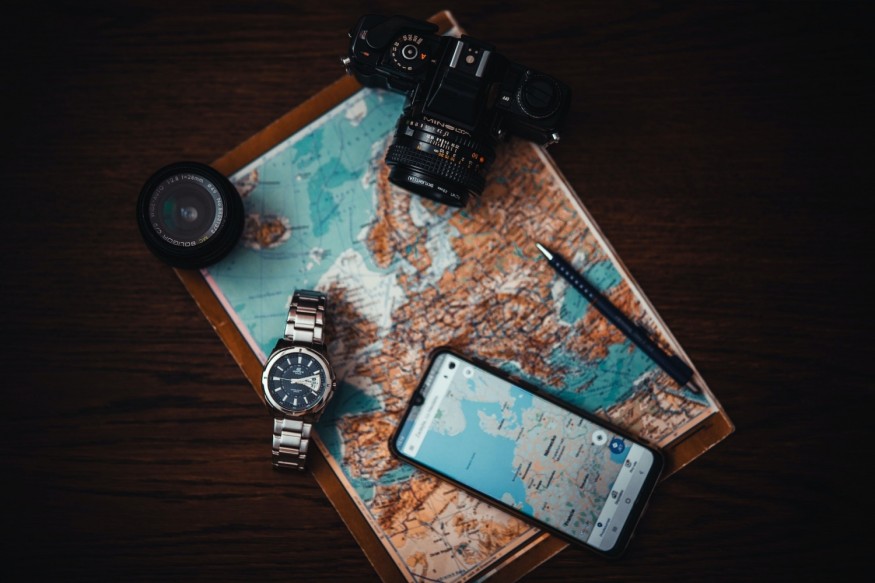
Traveling has always been one of life's most exciting experiences. It provides opportunities for adventure, relaxation, and cultural immersion. However, planning a trip can be difficult, particularly for first-timers. Fortunately, advances in technology have made it easier to plan a trip, book accommodation, and find the best deals. In this article, we will look at how travel technology improves how you plan your trip.
Travel Apps
The development of travel apps is one of the most important technological advances that has occurred in the field of travel. The way people plan their trips has been completely transformed due to these apps. There are many travel apps currently on the market, each of which offers a unique set of capabilities to assist you in the process of trip planning.
TripIt, for example, is a travel app that organizes all of your travel plans in one place. It generates a master itinerary for your trip, including flight information, hotel reservations, car rentals, and other activities. You can access your itinerary offline, which is useful for travelers who do not have internet access.
Airbnb is another popular travel app that allows you to book unique accommodation options such as apartments, villas, and even treehouses. Airbnb's user-friendly interface simplifies finding the ideal accommodation that fits your budget and preferences.
Flight and Accommodation Booking
Travel technology has made booking flights and accommodations easier and more convenient. You can book your flights and accommodations online from the comfort of your home using your smartphone or computer. Flight booking websites like Expedia and Skyscanner offer competitive prices and deals, making it easier to find affordable flights.
Furthermore, accommodation booking websites such as Booking.com and Hotels.com provide diverse options, ranging from low-cost hostels to luxury resorts. These websites have simple interfaces that allow you to narrow your search by budget, preferred location, and amenities. Some even provide virtual tours of the accommodations, so you know exactly what to expect.
Transportation
Getting around a new city can be difficult, especially if unfamiliar. However, travel technology has made it easier to find transportation options like taxis, buses, and trains. Ride-hailing apps such as Uber and Lyft have transformed the transportation industry. You can book a ride with just a few taps on your smartphone. They also provide real-time updates on the driver's location and expected arrival time, allowing you to better plan your day.
Public transportation apps like Citymapper and Moovit offer real-time schedules, route maps, and directions to assist you in navigating the city like a local. To ensure you get the best deal, these apps also provide information on ticket prices.
Travel Planning Tools
Knowing where to start when organizing a trip can be challenging, especially in an unfamiliar location. Luckily, you can find travel planning tools online that can streamline and simplify the task. Google Maps, for instance, provides users with accurate maps, turn-by-turn directions, and real-time traffic reports. Google Maps can help you locate hotels, restaurants, and other accommodation options in the area.
TripHobo is another helpful travel planning tool that lets you make an in-depth itinerary. You can add activities, attractions, and accommodations to your itinerary, and TripHobo will create a day-by-day plan for your trip. This can help you make the most out of your time and ensure you don't miss any must-see sights.
Language Translation
Without knowing the language, navigating a foreign country can be both exciting and frustrating. Thankfully, technology has made it simpler to bypass language barriers when traveling. Apps like Google Translate and iTranslate make it possible to translate any text, audio, or visual text in real time. This can be useful when trying to communicate with locals, and read signs or menus.
Online Security
While technology has made travel planning easier, it's essential to consider your online security during your trip. Public Wi-Fi networks in airports, hotels, and cafes can be risky as they are prone to cyber-attacks. This is where VPN comes in to protect your online activity.
So, does a VPN protect you from hackers? You bet! A VPN (Virtual Private Network) encrypts your internet connection, making it difficult for hackers to intercept your data. It creates a secure connection to a remote server, accessing the internet on your behalf. This ensures that your online activity is private and secure, protecting you from hackers and other cyber threats.
© 2025 ScienceTimes.com All rights reserved. Do not reproduce without permission. The window to the world of Science Times.












